by Soeren Kern • March 19th
"Christian street preachers should be free to share the gospel, even where it means challenging the beliefs of others." — Christian Concern, in a petition to UK Home Secretary Sajid Javid.
In recent years, dozens of Christians — clergy and non-clergy — in Britain have been arrested or fired from their jobs due to their faith. Much of the harassment is based on three sections of two British laws that are vague and open to subjective interpretations.
At an appeal hearing at Bristol Crown Court, attorney Michael Phillips emphasized the importance of freedom of speech, even in cases where the speaker does not necessarily hold the views being expressed. Another attorney, Paul Diamond, argued that there is no right not to be exposed to contrary ideas. He added that should passers-by not wish to hear the preaching, they are able to walk away.
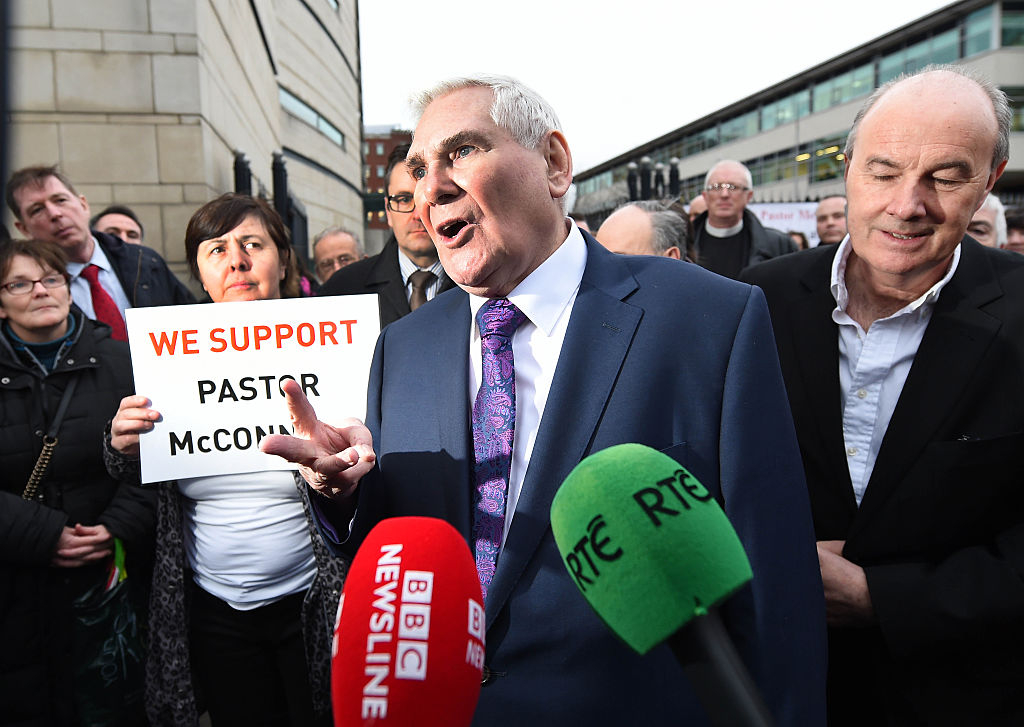
James McConnell, a 78-year-old Christian pastor in Northern Ireland, was charged in 2015 with making "grossly offensive remarks" about Islam during a sermon. Pictured: Pastor McConnell leaves Belfast Magistrates' Court on December 16, 2016 in Belfast, Northern Ireland. (Photo by Charles McQuillan/Getty Images)
The unlawful arrest of a Christian street preacher in London has drawn attention to the continuing use of hate speech laws to silence Christians in multicultural Britain — even as incendiary speech by Muslim extremists is routinely ignored.
On February 23, Oluwole Ilesanmi, a 64-year-old Nigerian evangelist known as Preacher Olu, was arrested at Southgate Station in North London after complaints that his message about Jesus was "Islamophobic." A video of the arrest, viewed more than two million times, shows how two police officers ordered the man to stop preaching because "nobody wants to listen to that," confiscated his Bible and then arrested him for "a breach of peace."
by Burak Bekdil • March 19th
On March 7, Turkish President Recep Tayyip Erdoğan said Turkey would never turn back from the S-400 missile deal with Russia. He even added that Ankara may subsequently look into buying the more advanced S-500 systems now under construction in Russia.
With the S-400 deal, Turkey is simply telling its theoretical Western allies that it views "them," and "not Russia," as a security threat. Given that Russia is widely considered a security threat to NATO, Turkey's odd-one-out position inevitably calls for questioning its official NATO identity.
Turkey has NATO's second biggest army, and its military love affair with Russia may be in its infancy now, but it undermines NATO's military deterrence against Russia.
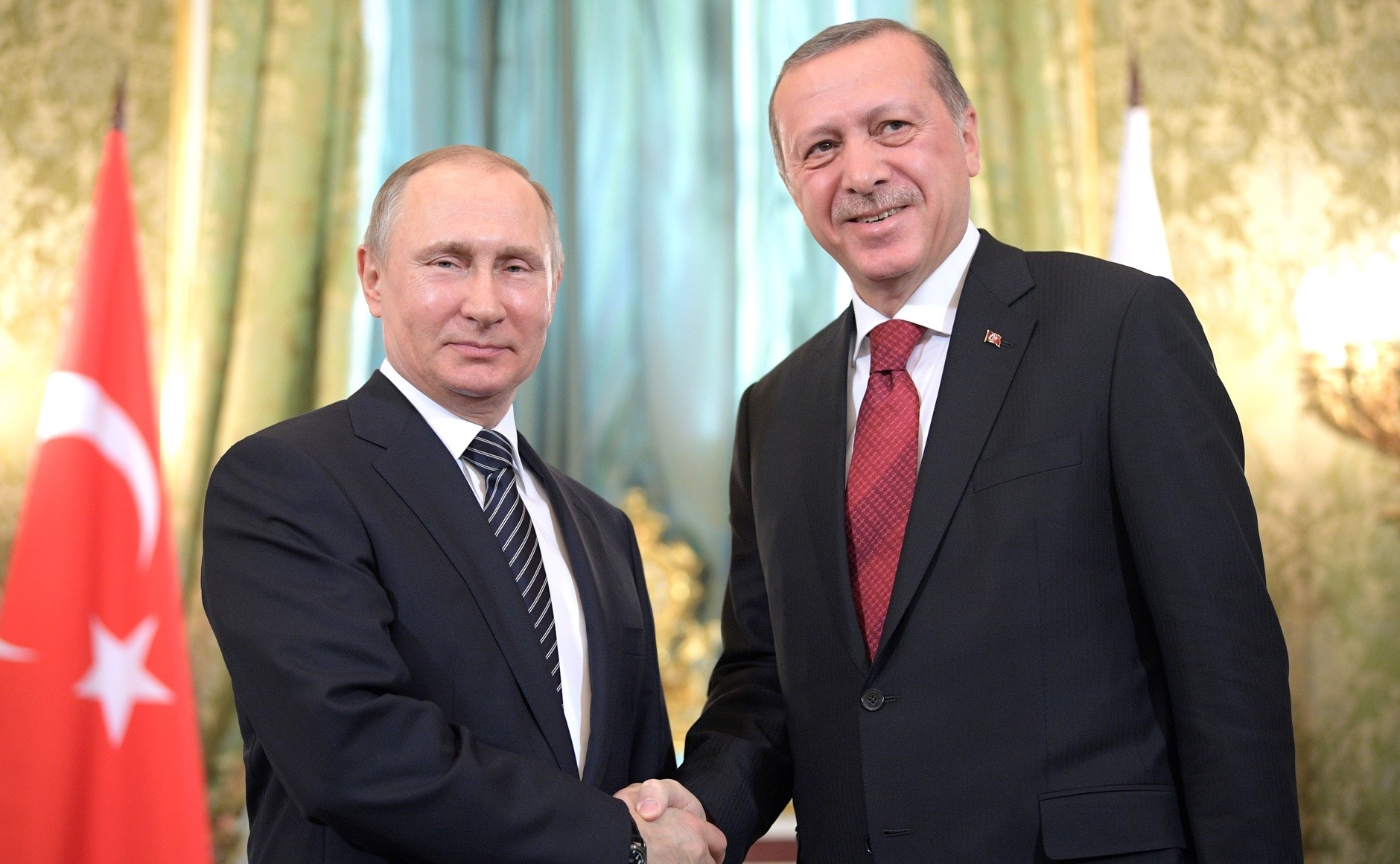
Turkey has NATO's second biggest army, and its military love affair with Russia may be in its infancy now, but it undermines NATO's military deterrence against Russia. Pictured: Turkish President Recep Tayyip Erdoğan meets with Russian President Vladimir Putin in Moscow, on March 10, 2017. (Image source: kremlin.ru)
On September 17, 1950, more than 68 years ago, the first Turkish brigade left the port of Mersin on the Mediterranean coast, arriving, 26 days later, at Busan in Korea. Turkey was the first country, after the United States, to answer the United Nations' call for military aid to South Korea after the North attacked that year. Turkey sent four brigades (a total of 21,212 soldiers) to a country that is 7,785 km away. By the end of the Korean War, Turkey had lost 741 soldiers killed in action. The U.N. Memorial Cemetery in Busan embraces 462 Turkish soldiers.
by Bassam Tawil • March 19th
Suddenly, everyone was talking only about the rocket attacks on Tel Aviv, and Hamas seemed to have gotten away with its beating and shooting at peaceful protesters. It is also worth noting that many of the Palestinians who were brutally beaten by Hamas were children. In the view of many Palestinians, what Hamas is doing in the Gaza Strip is tantamount to war crimes and crimes against humanity.
Recently, in a grotesque allegation, UN human rights "experts" claimed that Israel may have committed war crimes by shooting at Palestinian demonstrators who tried to breach the Gaza-Israel border fence and infiltrate into Israel. The demonstrators who were shot were mostly Hamas and Islamic Jihad members, as both organizations have openly admitted. In other words, Israel is being accused of war crimes for defending its border against terrorists attempting to infiltrate it in order to murder or kidnap Israelis.
Perhaps a small step, such as viewing easily available material, would set the record straight. These UN human rights "experts" might, for a change, glance at the videos and photos coming out of the Gaza Strip to see who is really responsible for war crimes and crimes against humanity: Hamas. Its members are opening fire at peaceful protesters, who are taking their lives in their hands to end the harsh economic conditions created by their rulers' catastrophic policies in the Gaza Strip. It is the leaders of Hamas, and only Hamas, who are committing war crimes in and around Gaza. They are committing war crimes against Jews and they are committing war crimes against their own people.
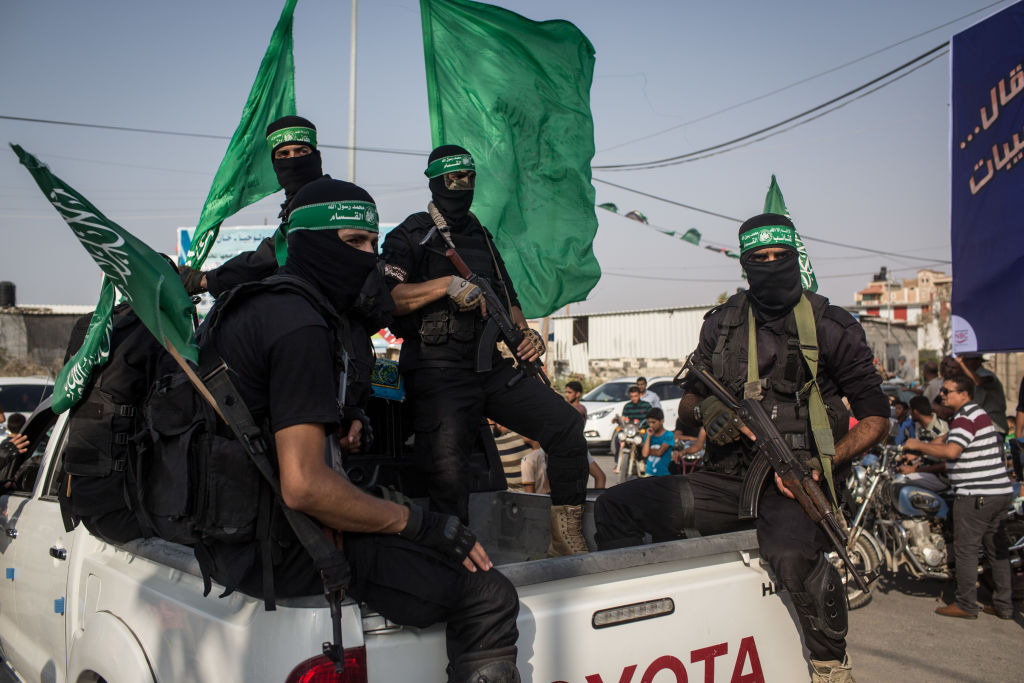
In recent days, Hamas members in Gaza have been beating, shooting at and arresting hundreds of peaceful Palestinian protesters whose only "crime" was to demand a dignified life, jobs and a better future. Many of the Palestinians who were brutally beaten by Hamas were children. Pictured: Hamas gunmen in Gaza City, July 20, 2017. (Photo by Chris McGrath/Getty Images)
Hamas has again proved that it really is a terrorist group that oppresses its people and prevents them from expressing their opinions. It has also shown that when it is in trouble, it will do its utmost to divert attention from the problems it is facing at home.
As far as Hamas is concerned, one of the best ways to divert attention from the growing frustration with its rule is by attacking Israel and Jews. Then, Israel is forced to respond to defend itself. That will allow Hamas to tell its people that there is no room for internal fighting and disputes "because we are under attack by the Jews." No Palestinian would dare to criticize Hamas while Israel is supposedly "attacking" Hamas. Anyone who did so would be accused of being a "traitor" and "collaborator" with the "Zionist enemy."
by Peter Huessy • March 19th
The proposed policies, if adopted by the new leadership in the House, would certainly fracture whatever consensus exists today to modernize America's strategic nuclear deterrent -- and at a time when both Russia and China are charging ahead militarily, and Iran and North Korea are racing toward a deliverable nuclear weapons capability.
If the United States chooses to eliminate its land-based missiles, as arms control advocates have proposed, it would dramatically and dangerously simplify an adversary's targeting calculus. The US would be reducing more than 500 distinct American-based nuclear-related targets -- including 450 Minuteman silos and 48 launch control centers spread across five American states -- down to only five continental US targets -- three USAF bomber bases, and two submarines bases -- and only roughly 10 targets if US submarines at sea were included.
China's "declared" policy of no first use policy is, in fact, suspect, considering the country's deployed weapons and nuclear threats to the US that involve America's protection of Taiwan. China, needless to say, is being currently exposed for its massive track record of lying, cheating and stealing everything, from their military land-fill bases in the South China Sea to the virtual theft from the United States of China's entire telecom industry.
There is no reason whatever to discontinue implementing the traditional three-part nuclear deterrent posture (land, sea and air) endorsed not only by the 2018 nuclear posture review (NPR) but also by the past three nuclear posture reviews (1994, 2001 and 2010). If the proposals above are adopted, two nuclear dangers in particular will be heightened. First, America's allies, no longer credibly protected by the US nuclear umbrella, may seek to build their own nuclear weapons to compensate for the omission. Second, in a crisis, America's adversaries might seek to disarm the US, or coerce it to stand down, especially as US nuclear forces would have been so diminished as to invite aggression, rather than deter it.
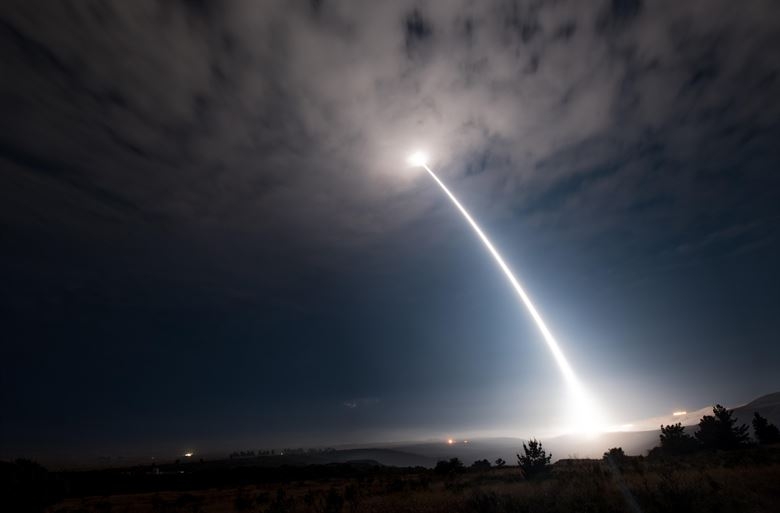
In the real world, it is important to remember what President John F. Kennedy said about America's newly built Minuteman missiles: that they were his "ace in the hole" and prevented the Cuban missile crisis from ending in Armageddon. Pictured: An unarmed Minuteman III intercontinental ballistic missile launches during an operational test on August 2, 2017, at Vandenberg Air Force Base, California (Image source: U.S. Air Force)
Modernization of the US strategic nuclear deterrent, often referred to by those who oppose it as "dangerous nuclear schemes," will require multiple decades to complete. To sustain such an effort, a bipartisan consensus needs to continue annually, regardless of who controls Congress or the presidency.
To succeed at its best, a nuclear modernization effort should be combined with a measurable, but verifiable arms control agenda; either the continuation of existing arms control treaties, expanded arms control efforts, or both.
Russia's violations of the INF treaty, including Russia's deployment of upwards of 100 illegal missiles, led to the INF treaty (unfortunately) becoming defunct. Such violations by Russia obviously make pursuing further or other arms control initiatives extremely difficult.
|
|
|
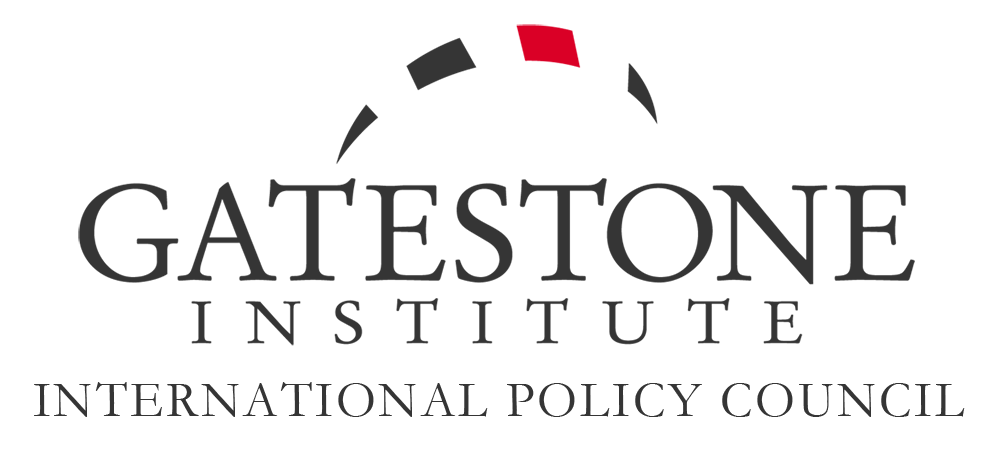




No comments:
Post a Comment